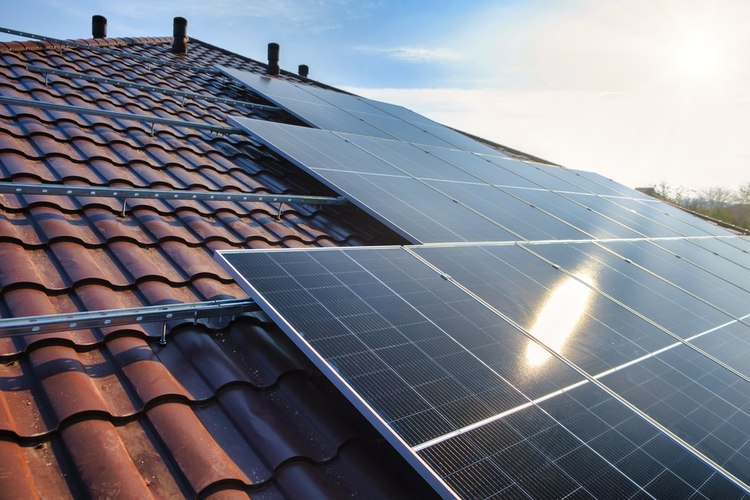Discover How Boiler Replacement Grants May Help Brits Get New Boilers
Boiler replacement grants provide vital financial support to UK homeowners and small businesses, easing the burden of upgrading to energy-efficient systems. With schemes like the Boiler Upgrade Scheme offering substantial grants, these initiatives promote the adoption of low-carbon heating technologies. Exploring eligibility, application processes, and additional support options reveals extensive opportunities for energy savings and sustainability.

What are boiler replacement grants in the UK?
Boiler replacement grants are financial incentives offered by the UK government and energy companies to help homeowners and businesses replace their old, inefficient boilers with newer, more energy-efficient models. These grants aim to reduce carbon emissions, improve energy efficiency, and help households save on their energy bills. The grants can cover a significant portion of the cost of a new boiler, making the upgrade more affordable for many who might otherwise struggle with the upfront expense.
Who is eligible for boiler replacement grants?
Eligibility for boiler replacement grants varies depending on the specific scheme. Generally, factors that determine eligibility include:
- Income level: Many grants are targeted at low-income households.
- Benefits received: Some grants are available to those receiving certain government benefits.
- Property type: Homeowners and private tenants are often eligible, while social housing tenants may have different options.
- Current boiler condition: Grants usually require that the existing boiler is old and inefficient.
- Energy efficiency rating: Some schemes consider the overall energy efficiency of the property.
It’s important to check the specific criteria for each grant scheme, as they can change and vary across different regions of the UK.
What is the Boiler Upgrade Scheme and how does it work?
The Boiler Upgrade Scheme (BUS) is a key initiative in the UK’s efforts to promote low-carbon heating systems. Launched in 2022, this scheme offers grants to property owners to encourage the installation of low-carbon heating systems in place of existing fossil fuel systems. Here’s how it works:
- The scheme provides grants of £5,000 for air source heat pumps and biomass boilers, and £6,000 for ground source heat pumps.
- It’s available for domestic and small non-domestic properties in England and Wales.
- The grant is paid directly to the installer and deducted from the total cost of installation.
- The scheme is set to run until 2025, with a total budget of £450 million.
The BUS aims to make the switch to low-carbon heating more accessible and affordable for property owners, contributing to the UK’s goal of net-zero emissions by 2050.
How do you apply for a boiler replacement grant?
The application process for boiler replacement grants typically involves the following steps:
- Check eligibility: Review the criteria for various grant schemes to see which ones you might qualify for.
- Energy assessment: Some schemes require an assessment of your property’s energy efficiency.
- Choose an installer: Select a certified installer who can carry out the work and often help with the application process.
- Submit application: Provide necessary documentation, which may include proof of income, benefits, or property ownership.
- Approval and installation: Once approved, the installer can proceed with fitting your new boiler or heating system.
- Grant payment: In most cases, the grant is paid directly to the installer, reducing your upfront costs.
It’s advisable to get quotes from multiple installers and to ensure they are registered with the relevant scheme before proceeding.
What are the benefits of upgrading your boiler through a grant scheme?
Upgrading your boiler through a grant scheme offers numerous advantages. Firstly, it significantly reduces the upfront cost of installation, making modern, efficient heating systems accessible to more households. New boilers are much more energy-efficient, potentially saving you hundreds of pounds annually on energy bills. They also contribute to reducing your carbon footprint, aligning with broader environmental goals.
Moreover, newer boilers are more reliable and less prone to breakdowns, potentially saving you money on repairs in the long run. Many modern systems come with smart controls, allowing for better management of your heating and further energy savings. Lastly, an efficient heating system can increase your property’s value and make it more attractive to potential buyers or renters.
Why should you consider learning more about boiler replacement grants today?
Understanding boiler replacement grants is crucial for anyone looking to upgrade their heating system. These grants can make a significant difference in the affordability of new, efficient boilers or low-carbon heating systems. Here’s a comparison of some current grant schemes:
| Grant Scheme | Available Funding | Eligible Technologies | Key Benefits |
|---|---|---|---|
| Boiler Upgrade Scheme | £5,000 - £6,000 | Heat pumps, Biomass boilers | Promotes low-carbon heating |
| ECO4 Scheme | Varies | Gas boilers, Insulation | Targets low-income households |
| Local Authority Delivery Scheme | Up to £10,000 | Various energy efficiency measures | Focuses on low-income areas |
Prices, rates, or cost estimates mentioned in this article are based on the latest available information but may change over time. Independent research is advised before making financial decisions.
In conclusion, boiler replacement grants offer a valuable opportunity for UK residents to upgrade their heating systems, reduce energy costs, and contribute to environmental sustainability. By exploring these options, you could significantly improve your home’s energy efficiency while benefiting from government support. As energy prices continue to fluctuate and environmental concerns grow, taking advantage of these grants could be a wise decision for both your wallet and the planet.
The shared information of this article is up-to-date as of the publishing date. For more up-to-date information, please conduct your own research.




